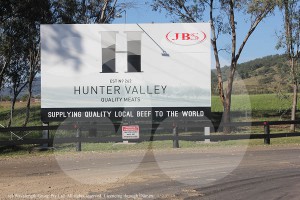Only 15 Local Jobs Lost
JBS said the decision to scale back operations at its Scone plant was a difficult one, but was based on livestock availability.
The outlook for livestock supply was detailed in recent Meat and Livestock Australia’s projection that predicted cattle slaughter rates would decrease by 27 to 30 percent during 2016 and 2017.
While there is a total of 158 positions to be cut from the business, around 15 of those positions are held by local people.
The majority of the positions being shed are labour hire, back packers and 457 visa holders.
John Berry, director and head of corporate and regulatory affairs said their priority had been to work to retain local workers.
“We will work through each individual case and if vacancies occur through natural attrition, those workers will be able to reapply for positions with us,” Mr Berry said.
“We inherited a business with a lot of workers who were labour hire, back packers or 457 visa holders and they are the main group of the people being let go to make way for a single day shift,” he said.
“There will still be some 457 visa holders, who have specialists skills that we need, but our priority is to retain local workers,” he said.
Mr Berry said they had worked closely with their consultative committee and the Union through the decision to move to the single shift.
He said the decision was to ensure the Scone business remained sustainable in the changing livestock market and said they will continue to invest in the Scone business including addressing some of the inherited environmental issues at the plant.
Beginning February 1, there will only be a day shift for the kill of 7.6 hours over five days and 9.5 hours over five days for bone operations.
 scone.com.au
scone.com.au